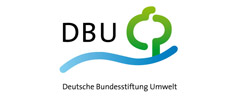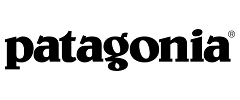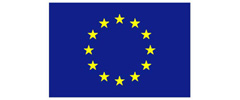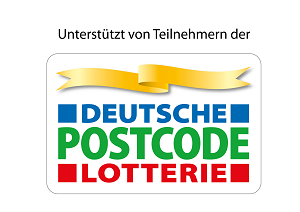Women warn UN High Level Political Forum could become futile if it does not address systemic obstacles to SDGs
Women2030, a women’s alliance working as part of the Women’s Major Group, gathered at the UN HLPF, warns about it failing to address key obstacles concerning the Sustainable Development Goals
20.07.2016 |

Day 2 at the HLPF, the WMG is sporting Red in their call for the ending of structural barriers that stop us from achieving true justice and peace. Copyright: WMG
Women2030 [1], a women’s alliance working as part of the Women’s Major Group [2], gathered at the United Nations High Level Political Forum (HLPF) [3] which closed today, warns about it failing to address key obstacles to the implementation of the Sustainable Development Goals (SDG) [4].
The HLPF session is the first ever follow up and review process of the SDGs since being agreed upon in September 2015. “The official theme of this years HLPF is ‘ensuring that no one is left behind’, which is positive in itself, but the Secretary Generals report shows a glaring absence of addressing Means of Implementation which fail to support any transformative change. Unless key issues like systemic obstacles to development, or lack of meaningful engagement of women and grassroots organizations are addressed, the 2030 Agenda will become a futile effort,” said Evelyn Ongige of Women Environmental Program.
A first group of 22 countries has volunteered to present their national reviews, in which they describe how they are preparing to implement the 2030 Agenda, in a manner that will “leave no-one behind.” An initial survey of these reports shows that only 2 countries seriously engaged civil society in developing their national SDG plans, and none particularly addressed women’s organizations [5]. However, in the country presentation at the UN, Georgia said the country’s Human Rights Action Plan would address gender equality, Turkey highlighted its action plan for gender equality and Germany recognized the need for the public sector to lead by example with regard to women and girls’ empowerment.
“Grassroots organizations risk being reduced to tokenistic consultation instead of being included in national policy development,” said Jeanette Sequeira of the Global Forest Coalition. “Women’s organizations can provide valuable lessons on how to implement the SDGs. For example, women play a vital role in conservation and sustainable use of biodiversity in communities. Their knowledge and efforts can help achieve biodiversity conservation targets, like the SDG 15.2 target which aims to end deforestation by 2020,” she said.
“Unfortunately, there is a glaring absence of work on systemic barriers in the UN Secretary Generals progress report on the SDGs! Some groups will always be deliberately left behind if we don’t address such systemic drivers of inequality,” said Warda Rina from Asia Pacific Forum on Women, Law and Development who cited examples of systemic barriers like neoliberal austerity, free trade and investment policies, militarism and fundamentalism, lack of access to resources like land, glaring inequality of wealth among others.
Women’s rights organizations have been essential in increasing gender equality and getting better legislation adopted, but they face major resource constraints [6]. “Women’s priorities are underrepresented in national plans and budget allocations. Not one of the 22 countries presenting their national reviews said they would start using gender budgeting as committed to in Addis Ababa [7]” said Sascha Gabizon from WECF International, “but some countries have committed that half of their development funding should be gender-responsive, such as France”.
The Women2030 program jointly with the Women’s Major Group will continue to monitor the national SDG implementation in over 50 countries across five regions to complement the official review process. The Women2030 project will conduct capacity building and support advocacy initiatives to ensure that the SDGs are implemented delivering women’s human rights, gender equality and development justice.

Notes
[1] Women 2030 is a program by an alliance of 5 global women’s alliances collaborating to implement the Sustainable Development Goals (SDGs) in a gender-equitable and climate-just way. They are part of a 5 year partnership agreement with the European Commission’s International Cooperation arm (DEVCO) called “Women CSOs implementing SDGs Agenda 2030.” See more at: http://bit.ly/29NA4ng
[2] The Women 2030 program cooperates closely with the “Women’s Major Group” which is the self-organized coalition of over 800 women’s and feminist organizations engaging in the 2030 Agenda policy process recognized by the United Nations see: http://www.womenmajorgroup.org
[2] The High-level Political Forum on Sustainable Development is United Nations central platform for the follow-up and review of the 2030 Agenda for Sustainable Development and the Sustainable Development Goals (SDGs), adopted at the United Nations Sustainable Development Summit on 25 September 2015. See: https://sustainabledevelopment.un.org/hlpf
[3] The UN adopted 17 SDGs in September last year as the next step to the Millennium Development Goals of the last decade, to lay out a universal roadmap to achieving sustainable development by 2030. The SDGs aim to end structural inequalities between countries, between rich and poor and between men and women. The HLPF was created to follow up and review the implementation of the SDGs. See all SDG goals, targets and indicators at https://sustainabledevelopment.un.org/focussdgs.html
[4] See Women’s Major Group report http://www.womenmajorgroup.org/survey-results-of-the-22-national-hlpf-review-governments-and-civil-society-association-for-national-reviews/
[6] See http://www.un.org/esa/ffd/ffd3/press-release/countries-reach-historic-agreement.html
Contact Information
Sascha Gabizon, Women in Europe for a Common Future, wecf@wecf.eu +49-172-8637586
Priscilla Achakpa, Women Environmental Programme, Priscilla.achakpa@wepnigeria.net +234-9-2910878
Jeanette Sequeira, Global Forest Coalition, jeanette.sequeira@globalforestcoalition.org +31617444814
Esther de Jong, Gender and Water Alliance, estherdejong@chello.nl, +31-313427230
Kate Lappin, Asia Pacific Forum on Women, Law and Development apwld@apwld.org +66-53-284527
Related News
#Ruralwomen: join our Women2030 campaign!
15.10.2018
What to expect from the climate talks that resumed in Bangkok this week?
COP24: second intersession of the climate change negotiations 2018, Bangkok, Thailand
07.09.2018
Together for sustainable sanitation and water security worldwide!
Stockholm, 26-31 Aug 2018: WECF participated in the World Water Week 2018 to further support the worldwide implementation of SDG 6
01.09.2018
WECF at HLPF 2018
"While HLPF is a great space for feminist solidarity, networking, awareness raising and knowledge sharing of best practices, you cannot really shake the feeling of: are we really doing enough to achieve the Sustainable Development Goals?"
07.08.2018






































